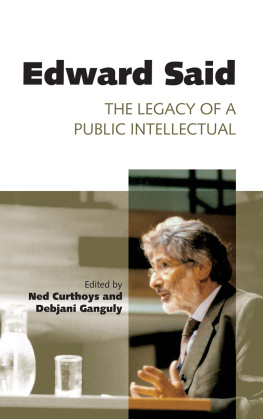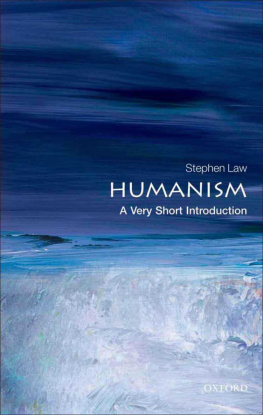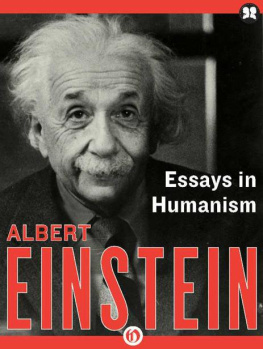Todorov - Imperfect Garden: the Legacy of Humanism
Here you can read online Todorov - Imperfect Garden: the Legacy of Humanism full text of the book (entire story) in english for free. Download pdf and epub, get meaning, cover and reviews about this ebook. City: Princeton, year: 2014, publisher: Princeton University Press, genre: Religion. Description of the work, (preface) as well as reviews are available. Best literature library LitArk.com created for fans of good reading and offers a wide selection of genres:
Romance novel
Science fiction
Adventure
Detective
Science
History
Home and family
Prose
Art
Politics
Computer
Non-fiction
Religion
Business
Children
Humor
Choose a favorite category and find really read worthwhile books. Enjoy immersion in the world of imagination, feel the emotions of the characters or learn something new for yourself, make an fascinating discovery.
Imperfect Garden: the Legacy of Humanism: summary, description and annotation
We offer to read an annotation, description, summary or preface (depends on what the author of the book "Imperfect Garden: the Legacy of Humanism" wrote himself). If you haven't found the necessary information about the book — write in the comments, we will try to find it.
Todorov: author's other books
Who wrote Imperfect Garden: the Legacy of Humanism? Find out the surname, the name of the author of the book and a list of all author's works by series.
Imperfect Garden: the Legacy of Humanism — read online for free the complete book (whole text) full work
Below is the text of the book, divided by pages. System saving the place of the last page read, allows you to conveniently read the book "Imperfect Garden: the Legacy of Humanism" online for free, without having to search again every time where you left off. Put a bookmark, and you can go to the page where you finished reading at any time.
Font size:
Interval:
Bookmark:

Imperfect Garden
THE LEGACY OF HUMANISM

Imperfect Garden
THE LEGACY OF HUMANISM
by
Tzvetan Todorov
TRANSLATED BY CAROL COSMAN
PRINCETON UNIVERSITY PRESS
PRINCETON AND OXFORD
Copyright 2002 by Princeton University Press
Published by Princeton University Press, 41 William Street, Princeton, New Jersey 08540
In the United Kingdom: Princeton University Press, 3 Market Place, Woodstock, Oxfordshire OX20 1SY
All rights reserved
Library of Congress Cataloging-in-Publication Data
Todorov, Tzvetan, 1939
[Jardin imparfait. English]
Imperfect garden : the legacy of humanism / by Tzvetan Todorov ; translated
by Carol Cosman.
p. cm.
Includes bibliographical references and index.
eISBN 978-1-40082-490-8
1. HumanismFranceHistory. 2. IndividualismFranceHistory. 3. Social valuesFranceHistory. 4. Philosophy, French. I. Title.
B778 .T5613 2002
144'.0944dc212001036868
2001036868
British Library Cataloging-in-Publication Data is available
This work was published in conjunction with the French Ministry of Culture National Center of Books.
This book has been composed in Sabon with Centaur Display
Printed on acid-free paper.
www.pup.princeton.edu
Printed in the United States of America
10 9 8 7 6 5 4 3 2 1
To my philosopher friends, Luc and Andr
C o n t e n t s
I m p e r f e c t G a r d e n
T H E L E G A C Y O F H U M A N I S M
Prologue
Satan proposed the first pact to Jesus. After forcing him to fast forty days in the desert, he gave him a momentary vision of all the kingdoms on earth. Then he told him: All this is in my power. Yet I am prepared to grant it to you. I ask only one small gesture in return: that you recognize me as your master; if you do this, all is yours. But Jesus replied, I do not want this power, for I wish only to serve God, and his kingdom is not of this world. Jesus thus rejected the pact. His successors, however, accepted it after a while. And from Constantine to Louis XVI, for more than fourteen centuries, they strove to reign over the devils kingdoms. Somewhat later, a Russian seer claimed that if Jesus returned to earth one day, he would be roundly reproached by the Grand Inquisitor for his rejection: Men are weak, the Inquisitor would have said, faith in God is not enough, Gods law is worth more.
The second pact was proposed in the fifteenth century by an emissary of the devil, Mephistopheles, to a proud and ambitious man, a magician, necromancer, and conjuror called Johann (or perhaps Georg) Faust, who had attempted to penetrate the secrets of life and death. Since you are so curious, the devils emissary said to him, I propose a bargain: You will have access to all knowledge of the world, no mystery will resist you; and you are surely aware that knowledge leads to power. In return, I am not asking you to make a grand declaration of submission: I require only one thing, a little odd, its true: at the end of twenty-four years (but that is a long time! you might not live to be so old), you will belong entirely to me, body and soul. Unlike Jesus, Faust accepted the terms of the contract. He therefore enjoyed infinite knowledge and garnered unanimous acclaim. But it is said that during the last years of the pact he became disgruntled, lost his interest in secrets, and never left his house; he prayed that the devil would forget him. But the devil does not forget, and the day the contract expired he carried the horrified Faust away, wailing in vain.
The third pact dates from nearly the same era as Fausts, but it has one peculiar feature: its very existence was not revealed at the moment it went into effect. The devils ruse this time consisted of keeping the other party to the contract, Modern Man, as humanity was then called, in the dark, allowing him to believe that he was gaining new advantages thanks to his own efforts, and that there would be no price to pay. This time, what the devil was offering was not power or knowledge but will. Modern Man would have the possibility of willing freely, of acquiring mastery of his own will and living his life as he wished. The devil hid the price of freedom so that man should develop a taste for it and have no desire to renounce it at a later datethen find himself obliged to clear his debt.
Modern ManRenaissance Man, Enlightenment Mantook some time to realize the full extent of his possibilities. Some of his representatives asked only for the freedom to organize their affective life to their own taste. They would have the right to choose a life with the people they cared for rather than following the laws of blood or those of the city, or their parents attachments. They might also freely choose their place of residence: let will and not chance decide the framework of their lives! Later, other representatives of Modern Man found the pleasure of freedom too sweet to be confined to only personal life. They demanded that reason should be liberated too: that it should no longer be obliged to recognize the authority of tradition transmitted by the memory of men. Tradition could continue to rule in civic matters or in dealings with God, but reason should be free to note the true and the false. Thereafter, the only knowledge declared to be certain was knowledge that had been reached by the natural lights of reason. Thus a purely human science was born, quite unlike the omniscience of Doctor Faust.
Having tasted these two freedomsthe freedom to submit exclusively to his own affections, to his own reasonModern Man was tempted by a new extension of his will. He had yet to assume the vast domain of his public actions. Only an action performed in freedom, on the strength of his will (this is what he would later call his responsibility), was now declared moral; only the political regime chosen by the will of its subjectsnow called democracywas judged legitimate. No domain now escaped the intervention of the will, which could enjoy its freedom in every circumstance. During this timea good two centuriesthe devil did not reveal that one day he would demand his due.
In the course of these two centuries, the conquest of freedom was the business of studious thinkers who confined their arguments to the pages of their books. A change took place in the second half of the eighteenth century, when a few men of action, discontented with the state of the world around them, perused the ideas hidden in these books and decided to let them out. They admired the beautiful new principles discovered by their elders and wanted to live in harmony with them rather than subject them to intellectual reflection. The American Revolution and the French Revolution were accompanied not only (in the first case) by a Declaration of Independence, but also by a Declaration of Autonomy never publicly announced, of adherence to the principle according to which no authority is superior to the will of men: the will of the people, the will of individuals.
Now the devil, judging that Modern Man had swallowed the bait, chose this moment to reveal the pact and announce that it was time to start paying for his past bounty. Even before the end of the eighteenth century, and of course repeatedly since, he has continued to present his bill. He did not wish, however, to appear in person but preferred to inspire several dark prophets, whom he charged with revealing to people the total sum of their debt. If you want to keep your liberty, these prophets said to their contemporaries, you will have to pay a triple price, first by separating yourself from your God, then from your neighbor, and finally from yourself.
No more God: You will have no reason to believe that a being exists above you, an entity whose value would be superior to your own life; you will have no more ideals or valuesyou will be a materialist. No more neighbor: other men, beside and no longer above you, will continue to exist but they will no longer matter to you. Your circle will shrink: first to your acquaintances, then to your immediate family, and finally to your self; you will be an individualist. You will then try to cling to your self, but this too will be threatened by dislocation. You will be swept by currents beyond your control; you will believe you are deciding, choosing, and willing freely, when in truth these subterranean forces will do it for you, and you will lose the advantages that had seemed to justify all those sacrifices. This self will be nothing but an anomalous collection of impulses, an infinite dispersal; you will be an alienated, inauthentic being, no longer deserving to be called a subject.
Next pageFont size:
Interval:
Bookmark:
Similar books «Imperfect Garden: the Legacy of Humanism»
Look at similar books to Imperfect Garden: the Legacy of Humanism. We have selected literature similar in name and meaning in the hope of providing readers with more options to find new, interesting, not yet read works.
Discussion, reviews of the book Imperfect Garden: the Legacy of Humanism and just readers' own opinions. Leave your comments, write what you think about the work, its meaning or the main characters. Specify what exactly you liked and what you didn't like, and why you think so.











